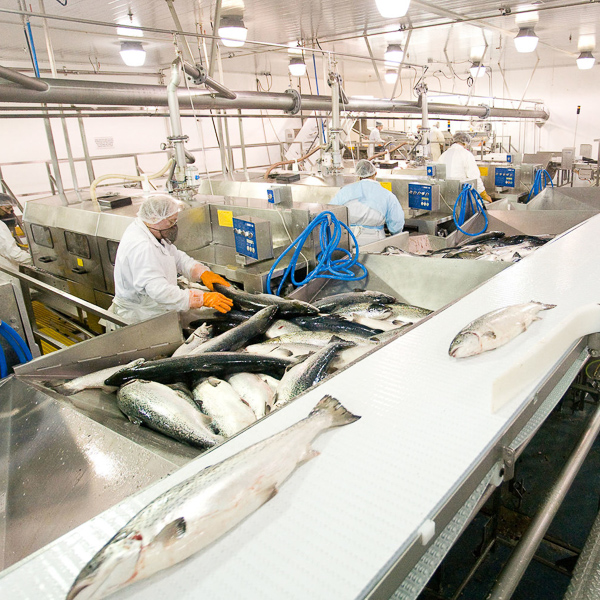Fisheries summit to discuss Federal Aquaculture Act
Federal Aquaculture Act will codify a pathway to establish aquaculture as a legitimate caretaker of Canada’s aquatic resources
By Fabian Dawson
SeaWestNews
Fisheries ministers from across Canada, meeting in St. John’s, Newfoundland this week, will examine the proposal for a Federal Aquaculture Act to clarify industry responsibilities and provide sustainable access to long term fish farm tenures.
“Over the course of the two days, the Ministers will be discussing aquaculture and the proposal for an aquaculture act, invasive aquatic species, market access, inland fisheries, marine conservation, and the updated Fisheries Act,” Jocelyn Lubczuk, a spokesperson for Department of Fisheries and Oceans told SeaWestNews.
The 2018 Canadian Council of Fisheries and Aquaculture Ministers’ co-hosted by Minister of Fisheries, Oceans and the Canadian Coast Guard, Jonathan Wilkinson, and the Minister of Fisheries and Land Resources for Newfoundland and Labrador, Gerry Byrnem will also discuss Indigenous reconciliation and ways of strengthening international market access to ensure continued economic growth for the Canadian seafood sector.
Wilkinson is expected to announce investments into the Atlantic Fisheries Fund to support innovation and technology to produce high quality Canadian seafood products at the close of the summit.
The push for a Federal Aquaculture Act, which has been embraced by Canadian seafood farmers, was mooted by the Campbell River Chamber of Commerce.
Similar proposed legislation has also been introduced in the United States. The Advancing the Quality and Understanding of American Aquaculture (AQUAA) Act is aimed to increase the United States’ involvement and production of healthy, sustainable, and affordable seafood.
“We hope to see it move forward… Canada can and must step up and seize the global podium for sustainable seafood farming,” Timothy Kennedy, Executive Director of the Canadian Aquaculture Industry Alliance, said at the recent Farmed Seafood Policy Conference in Ottawa.
The recent Agri-food Report from Canada’s Economic Strategy Table also pushed for a Federal Aquaculture Act citing the potential for the sector to nearly double production from 200,565 tonnes in 2016 to 381,900 tonnes in 2028 to meet rising global demand.
The federal report found the current complex regulatory framework stifled growth and opportunity for the aquaculture sector and called for an economic growth approach for the sector via a new Federal Aquaculture Act.
“Aquaculture is the fastest-growing sector of the agriculture industry and a Federal Aquaculture Act will provide a simplified regulatory path to grow our businesses, especially in coastal communities,” said John Paul Fraser, the Executive Director of the B.C. Salmon Farmers Association.
“Such legislation will codify a pathway to establish aquaculture as a legitimate caretaker of Canada’s aquatic resources,” said Fraser, after thousands of B.C. businesses in British Columbia lent their support for a Federal Aquaculture Act at the BC Chamber of Commerce Annual General Meeting, last Spring.
The BC Chamber of Commerce represents more than 125 Chambers of Commerce and Boards of Trade, and 36,000 businesses. About 88 percent of the delegates at the AGM, representing thousands of businesses, voted in favour of a resolution to support the Federal Aquaculture Act.
Here are some highlights of the resolution entitled Realizing the potential of Aquaculture in Canada; which is recommending that the Federal government:
- Through regional engagement, develop a Federal Aquaculture Act, to establish national environmental standards and clarify industry responsibilities;
- Ensure that Federal consultation with First Nations clarifies and is beneficial to resolving concerns and provides a framework that meets the needs of the industry for timely decisions;
- Support efforts to build public confidence in aquaculture management and place a focus on science and solution; and
- Create a truly modern federal management regime that is science based, agile, adaptable and focused on performance outcomes that ensure highest standards of sustainability and protection.
Farming and fish processing activities generate an estimated $5.16 billion in economic activity, $2 billion in GDP, and 25,000 full-time jobs for Canadians earning an estimated $1.16 billion in wages in 2016.
When the full value-chain of economic activity from the seafood farm to your plate is considered, Canadian farmed seafood generated a total of over $7.3 billion in economic activity throughout the economy, $3.75 billion in GDP, and $2.18 billion dollars in wages for almost 54,000 Canadian workers in 2016.
More than 40 Indigenous communities are directly or indirectly involved in farming seafood across Canada.
RELATED STORIES
B.C. businesses calls for a Federal Aquaculture Act
More countries around the world turning to fish farms: UN
A new chapter for aquaculture in the US

